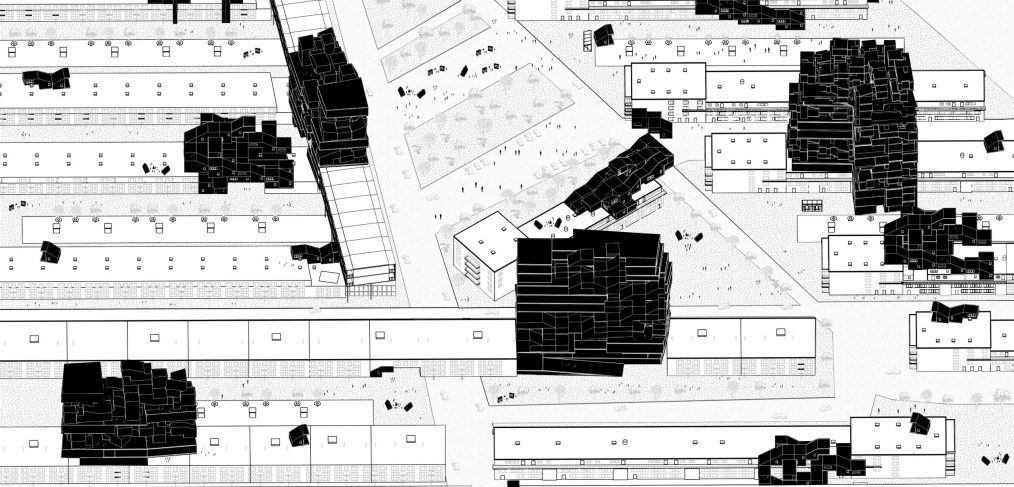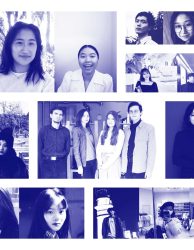
‘Foreigners’ No More
Team
Name: Nicholas Chung
Nationality: United Kingdom
Institution / Company: Syracuse University
Instagram: nicholaschung_arch
Name: Angelina Yihan Zhang
Nationality: United States
Institution / Company: Syracuse University
Instagram: az.35mm
LinkedIn: https://www.linkedin.com/in/angelina-yihan-z-482388130/
-HONOURABLE MENTION of Community 2050 Competition | Category: Open
Given that the world’s growing population is increasingly on the move, it is critical that we consider what the global city, the multi-cultural city, signals in relation to the changing dichotomy of foreign/local and foreigners/locals. Our proposal expands the reading of Ijplein as a ‘socio-cultural powerhouse’ by addressing the issues of densification and how a holistic living community can facilitate a more productive relationship between locals and the new foreign voices that join Ijplein. To that end, we propose an urban strategy centered around live-work communities that simultaneously facilitate structured an ad-hoc modes of exchange.
Inspired by the unit-based configuration of Ijplein’s architecture, the urban landscape is littered with loft modules that taper off existing structures or agglomerate against one another to produce combinations of public and private areas. New members of the community can apply for residency units and a space through a public-private land trust that manages the neighborhood and work to activate public spaces and programs as interconnecting tissues between private dwellings. Individual modules allow for privacy whilst keeping eyes on the street by maintaining vicarious visual engagement with the happenings of communal spaces. These communal spaces acts as platforms or landscapes for social exchange, the reproduction of culture, and constructive friction. They also act as shared work spaces for local business owners and foreign newcomers who can contribute by working whilst building up their own social networks in order to thrive in their new home. These connective tissues extend onto the street, spilling into one another to allow for the cross-pollination of various micro-communities.
The habitus we imagine aims to build mutual dependency between stakeholders and the community, instilling in everyone a sense of ownership and collective responsibility for the wellbeing of their environment and neighbors through collaboration and mutual understanding. The city itself is reimagined as an interpretive landscape where programs are decentralized and are highly flexible in composition and configuration, giving the community permission to explore different possibilities for themselves as well as allowing them the liberty to change the physical environment as they see fit. We strongly believe that normalizing constructive friction between all stakeholders is vital for the cities of tomorrow, especially given the increased polarization of ‘us’ and ‘them’, the prejudice and stereotyping forced upon migrants and immigrants, and a blasé attitude that more and more of us choose to adopt in response to the overwhelming amount of stimulation we now face in modern society. Louis Kahn writes in The Rome Letters of 1954 that “the street is a room by agreement, a community is a room dedicated to the city for common use, and its ceiling is the sky.” The future of urban communities is in large part the facilitation of the right to the city, the right to contribute, the right to be recognized for your role in your community regardless of where you come from.
#Right to the City #Modular Live-work Community #Launchpad for New Community Members #Densification #Social Inclusiveness and Upward Social Mobiliity
Jury Comments
– Zhang Yuxing
A very architecturally innovative community space system that helps to create rich living scenarios.









